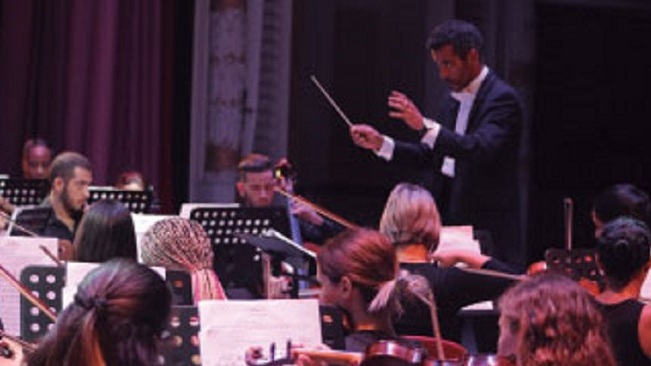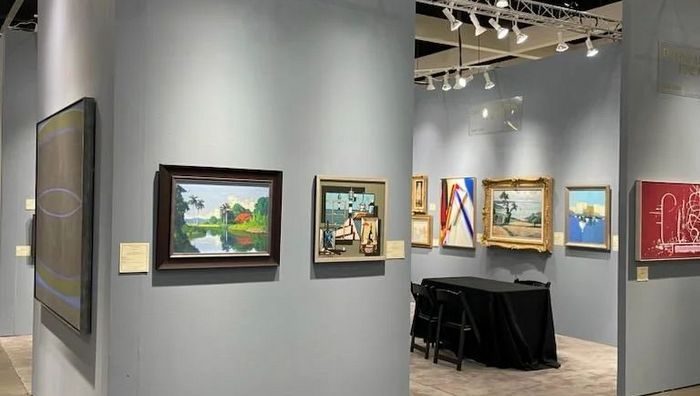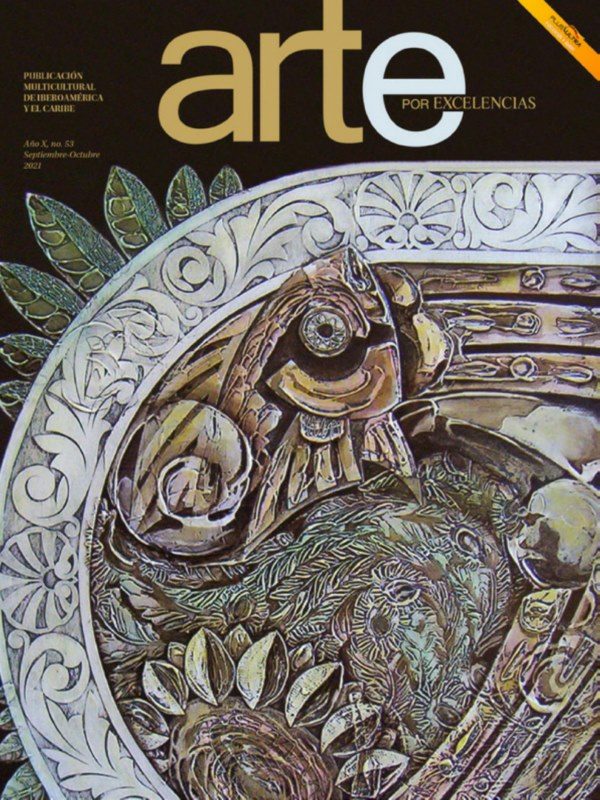 I had to come looking for him at what is now his house, the headquarters of El Público Theater. Here in the cold office within which he insists to smoke unrepentantly, Carlos Diaz learns to incorporate the weight of being National Theater Award. He is the youngest of all winners of this award which recognizes the work of a lifetime, and in his case there is no discussion, because everything he lives he transforms it into theater, this man born in Bejucal, in 1955, and who has guided for nearly twenty five years the company that confirms him as an essential name in the Cuban scene from the last quarter century.
I had to come looking for him at what is now his house, the headquarters of El Público Theater. Here in the cold office within which he insists to smoke unrepentantly, Carlos Diaz learns to incorporate the weight of being National Theater Award. He is the youngest of all winners of this award which recognizes the work of a lifetime, and in his case there is no discussion, because everything he lives he transforms it into theater, this man born in Bejucal, in 1955, and who has guided for nearly twenty five years the company that confirms him as an essential name in the Cuban scene from the last quarter century.
The National Theater Award talks of a lifetime devoted to the art scene. Who is Carlos Diaz who receives it, and what is the difference between this man who is about to turn 60 and the young man who ran the theater together with beginners in his hometown?
There is something that gets lost and that is ingenuity. I as a child always dreamed of the theater, of living in the theater. And now I'm someone who has the responsibility which has nothing to do with age or that I will die or anything like that, because there is Carlos Diaz for a long time, it makes me responsible for too much history, lives and talents that can not depend on me, but whom I try to influence the best.
I think from that time to this my life has become more complicated, because I have given a lot to the old, the middle, young people, parents who bring their children to learn how to get them to the theater. My life has not changed much since that Bejucal until now, because it can happen, as the day I was handed the National Theater Award, the Drums of Bejucal come to the theater and go to Linea Street and stop the traffic. I felt like in the park of my town when the Charangas passed by. And I think that the first theater I saw was in the Charangas, filled with their carriages full of surprises and all that celebration.
I also remember much, since I was a child, the cds my brothers listened to, in which the RCA Victor logo could be seen, with the image of the dog in response to the horn of a phonograph, and everything seemed very theatrical. The theater remains to be for me something like that: keep watching, discovering, and incorporating things in life and one's imagination and others into something that can be like a festival living here in the theater.
 Your group is called El Público and not only in honor of the homonymous piece of Federico Garcia Lorca you premiered in Cuba in 1994. It is named due to the viewers that have accompanied you with fervor, and who are there to praise or criticize each release, always with the desire of being surprised when leaving the Trianon. Is your El Publico Theater an act that without that tension is not completed?
Your group is called El Público and not only in honor of the homonymous piece of Federico Garcia Lorca you premiered in Cuba in 1994. It is named due to the viewers that have accompanied you with fervor, and who are there to praise or criticize each release, always with the desire of being surprised when leaving the Trianon. Is your El Publico Theater an act that without that tension is not completed?
The biggest reason of all that is created in the theater is the audience. A theatrical event is not consolidated if that energy of the audience is not there. Without action and reaction between the stage and the audience the memory is lost. Making theater is playing with the one who has come to the theater. Wrapping and almost convert those people who is watching you or listening to you for the duration of the performance. They came to see the Celestina, or Art or Icarus, and they know perhaps what it is Caligula, but we must show that Caligula is ours, the way we do it, and that's the game, we have to be very responsible with what we put on stage.
I am not so interested in criticism today, but I'm more interested in the most cryptic or interesting critic, that is the audience. It is never the same; you can be the most successful person on Friday and then the most decadent in function on Saturday and maybe you will breathe again with the public on the show of Sunday. I think theater must be done for all those people, for the one that comes to be happy or to cry, or even to share the space.
The ceremony in the afternoon in which the National Theater Award was presented was exciting. Actors, actresses and friends of the company went up on stage to recall fragments of their shows. And it all ended with a party that reached the street. Did you imagine such an event, in which you were a spectator of the affection and memory?
I have loved a lot and have been a very loved person, but the day of the ceremony all that surpassed me because the act was a wave of love and gratitude that hit me. I am now happy to have that afternoon in my side. I always see my work from the back rows, and this time I seated in the front row, next to the Minister of Culture, officials of the Council for the Performing Arts, the Union, UNEAC, and I was a bit like John Proctor in the Crucible, in the moment of the judgment and everyone leaves to say something about me.
I could not say a word. I enjoyed it because I think it was one of those moments you will never forget. And I had the audacity to record my thanks, because as I say, I'm the team tear, and if I was excited I would have to call one of my speakers or Norge Espinosa to read my words. And no, everything I have to say I say it with my work.
Related Publications

How Harumi Yamaguchi invented the modern woman in Japan
March 16, 2022












